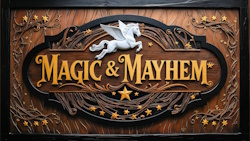You may have noticed a recent slant in my posting topics towards e-books and electronic publishing. This is not without purpose. For a while now I've been considering foregoing the traditional publishing route in favor of the electronic, self-publishing one. The reasons for this are many. For one, it's disheartening (yet encouraging at the same time) when established writers divulge sales information that poignantly dismisses the traditional route.
Second, this writing thing is not my only thing. It's something I thoroughly enjoy, yet I don't expect to make a living from it. I'm not saying I wouldn't want to make a living from it, but the realities are that my day job will likely always pay more, and I'm at the point in my life where I'm not willing to downsize or give-up my lifestyle (such as it is). Perhaps going the traditional route is a game for the young. Or perhaps it just isn't the route to take at all anymore, at any age, because the direction of things has changed.
Traditional vs. Electronic Publishing
Currently, I don't have a publisher. Nor do I have an agent. In truth, I wonder sometimes if I really need either. You see, the rules themselves have been altered. No longer do writers need to rely solely on publishers for exposure and distribution. Sure, publishers can give your career a boost out of the starting gate. But so much of it relies on the author taking it from there that the publisher/agent model soon becomes a hindrance and, in some cases, a detriment: while said writer is engaging in all the work, guess who's siphoning off the majority of the profit?
However, there's no doubt publishers have the potential to raise the bar in terms of quality. I'll be the first to admit that you have to wade through a lot of junk on the Kindle store, for example, before you find quality in the "self-published bin" (there's not really a "self-published bin", by the way). Publishers therefore have the potential to act as gatekeepers, holding back the stuff that probably shouldn't be seen by readers until it's been polished a bit more.
While I admire and envy those who have found success via the traditional publishing route, I'm seriously considering that it might not be right for me. I already have a day job; the reality of the situation is that I'll always be more self-sustaining doing that than writing. But I love putting words to paper, and especially concocting fantastic stories and the characters that populate them. Fortunately, there is hope for people like myself, and it is e-books.
E-books
E-books and the proliferation of high-quality e-reading devices are becoming the new medium for reading. Paper books will no doubt have their place for years to come, but it is a dying model. The world has gone green, and convenience coupled with instant gratification is a powerful driving force. Amazon, for example, touts their Kindle reading device with 3G wireless with this line: "...think of a book and you'll be reading it in less than 60 seconds". Competition in the e-reader space is growing every day. This, in turn, will continue to drive prices down. With many e-books already selling for $0.99, and price battles going on between the major players, this becomes a win-win for consumers.
But it's also a win for writers. Amazon, Scribd, even our own web sites become our distribution warehouses and provide the exposure we might not otherwise obtain. The middle-men—namely publishers and agents—are taken out of the equation. With more hands removed from the pot, the shares of those remaining gets bigger.
However...
Going electronic is not for everyone. For one, it's unlikely you can make a living off it (yet). But then everyone's definition of 'living' is a bit different, so a decision of this nature really becomes a personal one.
It's not an easy decision to make, either. I wonder in that you don't risk alienating yourself from ever breaking into the traditional model by jumping into the electronic one. Maybe that doesn't matter.
Of course, what I'm really talking about here is self-publishing, which has been around for a long time. Some authors (Paolini comes to mind) self-published, only to find great success under the traditional model after the fact. Is electronic publishing therefore any different?
[ Advertisement: SF/F Shorts by Amazon ]
[ Follow me on Twitter ]

Indulge in fantastic tales of sword, sorcery, and alchemy today by joining thousands of readers like yourself who can't get enough of Scott Marlowe's
"intense" storytelling and "skillfully written" adventures. You'll get two free stories, The Hall of Riddles and The Assassin's Dilemma, plus an original short story set in my world delivered to you each and every month.